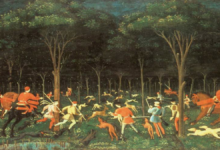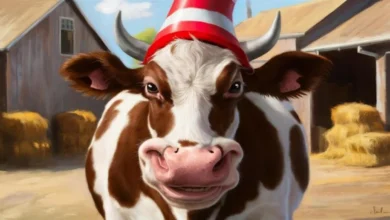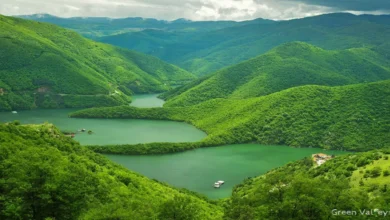Outlander Background 5e: Unique Backstory Ideas for Your Barbarian or Ranger
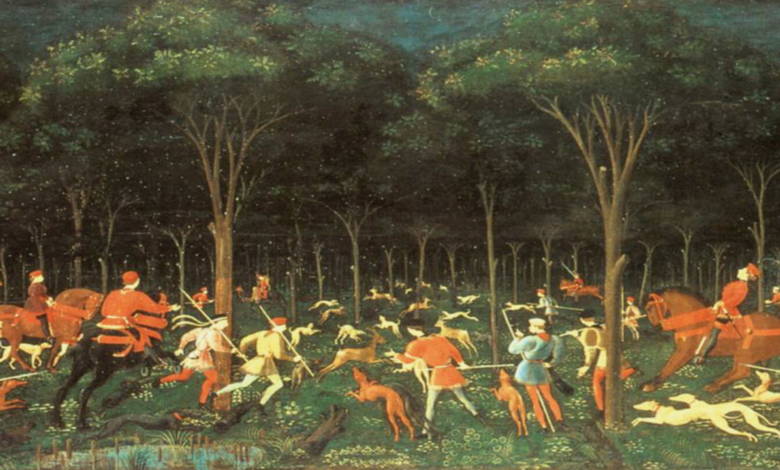
The Outlander background in Dungeons & Dragons 5th Edition (5e) is perfect for characters who thrive in the wild—whether rugged barbarians, stealthy rangers, or survivalist druids. This background provides skills and features that make wilderness navigation, hunting, and survival second nature.
But what truly brings an Outlander Background to life is a compelling backstory. A well-crafted origin can elevate your character from a simple wanderer to a memorable adventurer with depth, motivation, and personality.
In this guide, we’ll explore:
✔ What makes the Outlander background unique in 5e
✔ How to optimize it for barbarians and rangers
✔ 10 unique backstory ideas to inspire your next character
✔ Roleplaying tips to enhance your Outlander’s personality
Whether you’re a player looking for inspiration or a DM seeking NPC ideas, this guide will help you craft a wild and engaging Outlander.
What Makes the Outlander Background Special in 5e?
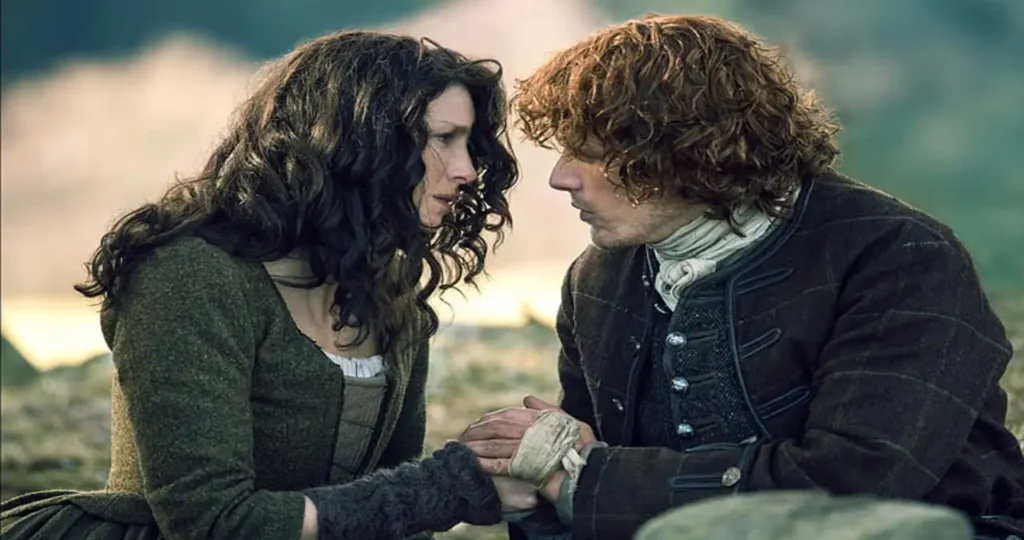
The Outlander background (found in the Player’s Handbook) represents characters who grew up far from civilization—hunters, nomads, tribal warriors, or exiled hermits. Their abilities reflect a deep connection to nature and survival instincts.
Key Features of the Outlander Background:
- Skill Proficiencies: Athletics, Survival
- Tool Proficiencies: One musical instrument (often a tribal drum or flute)
- Languages: One of your choice (often Sylvan, Giant, or Primordial for wilderness themes)
- Equipment: A staff, hunting trap, trophy from an animal, a set of traveler’s clothes, and a belt pouch with 10 GP
- Feature: Wanderer – You can always recall the general layout of the terrain, find food and fresh water for yourself and up to five others, and navigate the wild with ease.
This background is ideal for classes that rely on physical prowess and wilderness expertise, making it a natural fit for:
- Barbarians (Tribal warriors, beast hunters, exiled berserkers)
- Rangers (Scouts, monster slayers, feral guardians)
- Druids (Nature mystics, hermits, spirit walkers)
- Fighters (Survivalist mercenaries, lone hunters)
Now, let’s dive into unique backstory ideas to make your Outlander stand out.
10 Unique Outlander Backstory Ideas for Barbarians & Rangers
1. The Exiled Beast-Hunter
“I was once the greatest hunter of my tribe—until the beast I failed to kill destroyed everything.”
- You were a renowned tracker in a nomadic tribe, tasked with slaying dangerous creatures.
- One hunt went wrong, and a monstrous beast (a wyvern, yeti, or demon-possessed wolf) slaughtered your people.
- Now, you wander, seeking vengeance—or redemption.
- Class: Barbarian (Path of the Beast) or Ranger (Monster Slayer)
2. The Feral Child Raised by Beasts
“Civilization’s words are strange to me. Outlander Background The howl of the wolf is my true tongue.”
- Abandoned as a child, you were raised by wolves, bears, or even fey creatures.
- You struggle with human customs but have unmatched instincts.
- Perhaps a druid or ranger found you and taught you language—or you remain wild.
- Class: Barbarian (Totem Warrior) or Ranger (Beast Master)
3. The Last of a Forgotten Tribe
“My people are gone, but their spirits guide my steps.”
- Your Outlander Background tribe was wiped out by disease, war, or a curse.
- You carry their traditions, performing rituals to honor the dead.
- Maybe an ancient prophecy says you must find a new homeland.
- Class: Ranger (Gloom Stalker) or Barbarian (Ancestral Guardian)
4. The Cursed Wanderer
“I do not age. I do not die. The wilds are my prison.”
- A witch, fey, or demon cursed you with immortality—or lycanthropy.
- You’ve wandered for centuries, watching civilizations rise and fall.
- Now, you seek a way to break the curse—or embrace it.
- Class: Barbarian (Path of the Zealot) or Ranger (Horizon Walker)
5. The Disgraced Tribal Champion
“I was supposed to lead my people. Instead, I failed them.”
- You were a champion of your tribe but lost a crucial duel or battle.
- Exiled in shame, you now seek to prove your worth—or reject your past entirely.
- Class: Barbarian (Path of the Berserker) or Ranger (Hunter)
6. The Mystic Hermit
“The voices of the wind speak to me. Few understand.”
- You Outlander Background lived alone in the wilderness, communing with spirits or ancient gods.
- Visions compelled you to leave isolation and join the world.
- Class: Ranger (Fey Wanderer) or Barbarian (Storm Herald)
7. The Escaped Gladiator
“The arena was my cage. The wilds are my freedom.”
- Captured as a slave, you fought for entertainment.
- You escaped into the wilderness, surviving where others would perish.
- Now, you refuse to be caged again.
- Class: Barbarian (Path of the Battlerager) or Ranger (Swarmkeeper)
8. The Lost Noble Turned Survivalist
“I was born in a palace. Now, I sleep under the stars.”
- A noble exiled or lost in the wilds, you adapted to survive.
- You may seek to reclaim your birthright—or reject nobility forever.
- Class: Ranger (Drakewarden) or Barbarian (Wild Magic)
9. The Guardian of a Sacred Land
“This forest is my temple. Those who harm it will bleed.”
- You were chosen by a nature deity or ancient druidic circle to protect a sacred place.
- When Outlander Background threaten it, you take up arms.
- Class: Ranger (Hunter) or Barbarian (Totem Warrior)
10. The Wandering Storyteller
“I carry the tales of a hundred tribes. Let me sing you their songs.”
- You Outlander Background travel not just to survive, but to preserve forgotten legends.
- Your music and stories inspire—or warn of ancient dangers.
- Class: Ranger (Fey Wanderer) or Barbarian (Path of the Ancestral Guardian)
Roleplaying Your Outlander: Personality & Traits
To make your Outlander feel real, consider:
Personality Traits (From PHB)
- “I’m always picking things up, absently fiddling with them, and sometimes accidentally breaking them.”
- “I feel far more comfortable around animals than people.”
- “I watch over my friends like a wolf guards its pack.”
Ideals
- Freedom: “The wild does not bow to kings.”
- Survival: “Only the strong endure.”
- Tradition: “My ancestors’ ways must not be forgotten.”
Bonds
- “I will avenge my fallen tribe.”
- “I protect those who cannot survive the wilds.”
- “A sacred beast guides my path.”
Flaws
- “I distrust city folk and their ‘civilized’ ways.”
- “I refuse to back down from a challenge, even if it’s foolish.”
- “I hoard food and supplies, fearing scarcity.”
Optimizing Your Outlander Build
Best Races for an Outlander
- Goliath (Natural athletes, mountain survival)
- Wood Elf (Fleet-footed, stealthy hunters)
- Human (Variant) (+1 to stats, bonus feat)
- Firbolg (Nature-connected, hidden step)
- Tiefling (Feral) (Demon-wild hybrid)
Best Class Synergies
- Barbarian: Focus on Strength & Constitution; great for melee combat.
- Ranger: Focus on Dexterity & Wisdom; excels in ranged attacks and tracking.
- Druid: Wisdom-based spellcasting with wild-shape synergy.
Final Thoughts: Bringing Your Outlander to Life
The Outlander background is more than just a survivalist—it’s an opportunity to craft a character with deep ties to nature, tragedy, or adventure. Whether you choose to play a vengeful barbarian, a spirit-touched ranger, or a lone wolf druid, your backstory will shape your journey.
Use these ideas as inspiration, then add your twists. Maybe your Outlander carries a mystical artifact, seeks a lost homeland, or is haunted by a spirit. The wilderness is vast—and so are the stories within it.
Now, go forth and let your Outlander roam the wilds of your next D&D campaign!
Need More D&D Inspiration?
Check out our guides on:
- “Best Wilderness Encounters for 5e”
- “How to Play a Barbarian Like Conan”
- “Ranger Subclasses Ranked for Exploration”
Would you like additional customization tips or encounter ideas for your Outlander? Let us know in the comments!
5 FAQs on “Outlander Background 5e: Unique Backstory Ideas for Your Barbarian or Ranger”
1. What classes work best with the Outlander background in 5e?
The Outlander background is ideal for Barbarians, Rangers, Druids, and Fighters due to its focus on survival, physical prowess, and wilderness skills. Barbarians benefit from the Athletics proficiency, while Rangers and Druids make great use of Survival and the Wanderer feature for navigation.
2. Can an Outlander be from a civilized area, or do they have to be feral?
While the Outlander is typically associated with wilderness origins, your character could have adapted to the wilds after being exiled, lost, or choosing a nomadic life. For example, a disgraced noble or escaped gladiator could become an Outlander despite starting in civilization.
3. How do I make my Outlander’s backstory unique?
Avoid clichés by adding unexpected twists, such as:
- A cursed immortal forced to wander for centuries.
- A former city-dweller who embraced the wild after a disaster.
- A spirit-chosen guardian bound to protect a sacred land.
4. What are some good flaws for an Outlander character?
Outlanders often struggle with social norms or past traumas. Consider flaws like:
- “I hoard food obsessively, fearing starvation.”
- “I distrust city folk and their ‘civilized’ laws.”
- “I refuse to retreat from a fight, even if it’s suicide.”
5. How can I use the Wanderer feature effectively in-game?
The Wanderer feature ensures your party never gets lost in the wilderness and always finds food/water. Use it to:
- Lead expeditions through uncharted lands.
- Bypass survival rolls for basic navigation.
- Earn gold as a guide for other adventurers.
